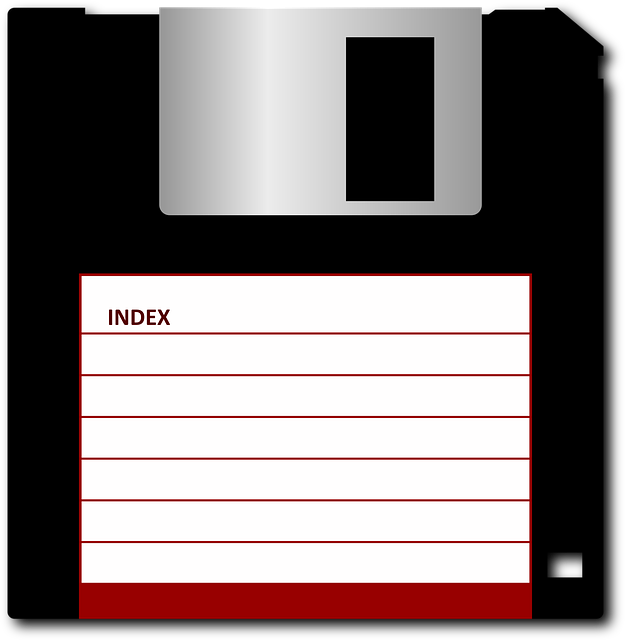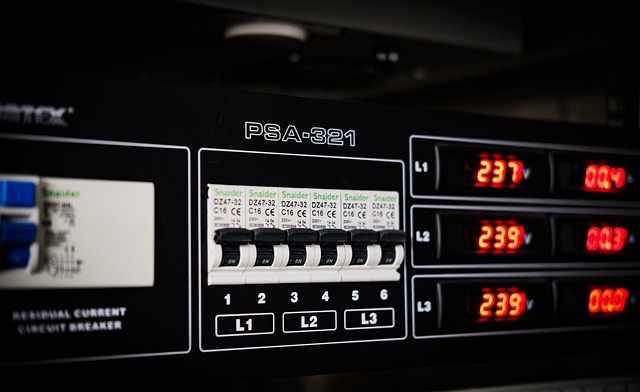Sensitive financial data requires stringent security measures for CPAs. Cloud backup solutions offer secure and readily recoverable data archives, mitigating risks from cyberattacks or natural disasters. This strategy ensures business continuity, enhances operational resilience, and streamlines financial record backups for CPAs, making it an indispensable tool in the digital landscape.
In today’s digital landscape, protecting sensitive financial data is paramount for CPAs. Understanding the unique risks associated with this information is crucial for maintaining business continuity and ensuring swift recovery in the event of a disaster. This article explores effective strategies, from traditional disaster recovery methods to modern cloud backup solutions, designed to safeguard financial records and enable rapid restoration. Discover how secure cloud storage and regular audits can fortify your Data Protection infrastructure.
- Understanding Financial Data Sensitivity and Risks
- Traditional Disaster Recovery Methods for CPAs
- The Role of Cloud Backup in Business Continuity
- Implementing Secure Cloud Storage for Financial Records
- Strategies for Rapid Recovery of Sensitive Data
- Regular Audits and Testing: Ensuring Effective DR Plans
Understanding Financial Data Sensitivity and Risks

Sensitive financial data is a critical asset for any business, especially CPAs who deal with extensive and confidential information on a daily basis. Understanding the sensitivity of this data is paramount when considering business continuity and disaster recovery strategies. Financial records are not only valuable but also highly regulated, making data security and privacy top priorities. Every transaction, client detail, and financial report contains sensitive information that, if compromised, could lead to severe consequences, including legal repercussions and reputational damage.
The risks associated with financial data breaches are multifaceted. Hackers and cybercriminals target businesses for their valuable data, often employing sophisticated methods to infiltrate systems. Natural disasters or technical failures can also disrupt operations and put business data at risk. To mitigate these threats, cloud backup solutions for CPAs offer a robust strategy. By implementing encrypted backups and cloud-based disaster recovery plans (DRP), firms can ensure that their financial data is not only secure but quickly recoverable in the event of an incident. This dual approach to security and redundancy guarantees business continuity, providing peace of mind for CPAs managing sensitive client information.
Traditional Disaster Recovery Methods for CPAs

In the realm of sensitive financial data, Business Continuity and Disaster Recovery (BCDR) are non-negotiable for Certified Public Accountants (CPAs). Traditional methods often involve on-premises backup solutions, where data is stored within the firm’s physical servers. However, these methods present significant challenges, including limited accessibility, high maintenance costs, and potential security risks. With the increasing demand for remote work and the need to protect against cyber threats, CPAs are turning towards cloud backup as a game-changer in their BCDR strategies. Cloud backup for CPAs offers numerous advantages, such as real-time data synchronization, remote access, and robust security features, ensuring business data protection like never before.
By leveraging cloud technology, CPAs can implement efficient backup monitoring systems that alert them to any issues or failures promptly. This enables swift action during emergencies, facilitating an emergency IT restore with minimal downtime. Unlike labyrinthine on-premises setups, cloud backup solutions provide a simple, scalable, and cost-effective way to safeguard financial data, ensuring businesses remain operational even in the face of disasters.
The Role of Cloud Backup in Business Continuity

In today’s digital age, where financial data is increasingly valuable and sensitive, ensuring its protection and accessibility is paramount for CPAs. Cloud backup plays a pivotal role in business continuity strategies by providing a robust and secure solution to safeguard critical information. This technology offers unparalleled benefits, such as real-time data replication and automated backup processes, enabling quick recovery in the event of a disaster or cyberattack.
For CPAs, implementing a cloud-based Disaster Recovery Plan (cloud-based DRP) enhances operational resilience. Backup automation ensures that financial records are consistently backed up without manual intervention, reducing human error and increasing efficiency. Moreover, advanced backup monitoring tools allow professionals to track data integrity, detect potential issues early on, and ensure the overall success of any recovery efforts.
Implementing Secure Cloud Storage for Financial Records

In today’s digital era, securing financial records is paramount for CPAs looking to safeguard sensitive client data. Implementing a robust cloud backup solution offers an effective strategy for achieving this. Cloud storage provides not only secure data archiving but also enhances business continuity and disaster recovery capabilities. By leveraging cloud-based DRP (Disaster Recovery Planning), CPAs can ensure their financial records are readily accessible, even in the event of a disruptive incident.
This approach enables efficient data protection, allowing professionals to quickly restore access to critical information without compromising security or integrity. Moreover, cloud backup services offer scalability and flexibility, ensuring that financial data is managed in a way that aligns with the evolving needs of modern accounting practices.
Strategies for Rapid Recovery of Sensitive Data

In today’s digital landscape, the rapid recovery of sensitive financial data is paramount for CPAs aiming to maintain business continuity and protect their clients’ information. A robust strategy involves leveraging cloud backup solutions tailored for accounting professionals. These services not only ensure secure off-site storage but also enable quick restoration in the event of a breach or system failure. By implementing automated, encrypted backups, CPAs can minimize downtime and data loss, which is crucial for maintaining client trust and regulatory compliance.
Complementing cloud backup for CPAs are data archive services that facilitate efficient data retention and retrieval. Combined with regular backup monitoring, these comprehensive solutions offer multiple layers of protection. Encrypted backups ensure that even if unauthorized access is gained, the data remains unreadable and unusable, adding an extra safeguard to sensitive financial information.
Regular Audits and Testing: Ensuring Effective DR Plans

Regular audits and testing are essential components of any robust business continuity and disaster recovery (BCDR) strategy, especially for financial institutions handling sensitive data. These activities ensure that the planned response to potential disruptions—like data breaches or system failures—is effective and efficient. CPAs should conduct frequent reviews of their disaster recovery plans (DRPs), scrutinizing every step and scenario to identify weaknesses or gaps.
By simulating real-world scenarios, including cloud backup failure or data corruption, organizations can assess the viability of their recovery procedures. Automation in the form of automated backups and testing can significantly enhance efficiency during these audits. Cloud-based disaster recovery plans that integrate data archive services offer a secure and reliable solution, ensuring that financial records remain intact and accessible even in the face of catastrophic events.
